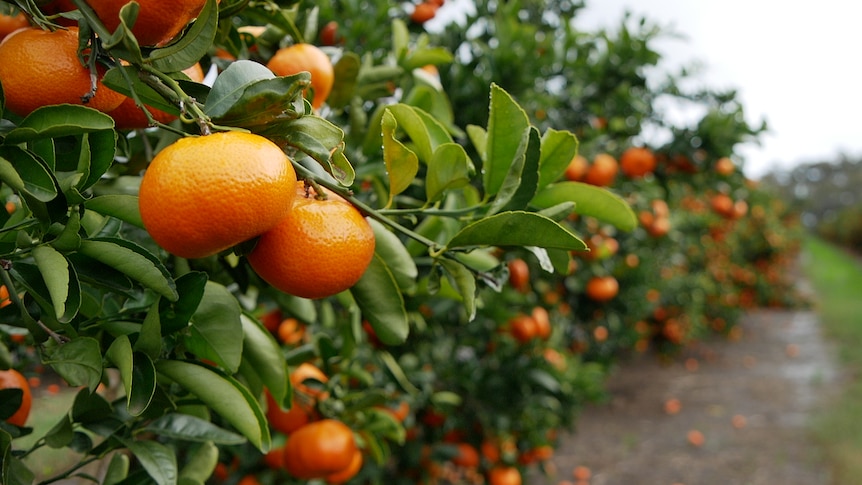Mandarins are providing a much-needed source of income for citrus growers in South Australia amid a tough season.
Key points:
- A Riverland citrus company says they can’t keep up with demand for mandarins
- Flooding on the east coast and cold weather has affected citrus supply
- Domestic demand has fueled sales for fruit unable to be shipped overseas
With flooding affecting many areas on the east coast, mandarins from the Riverland region have been filling supermarket shelves across the country.
Venus Citrus managing director Helen Aggeletos said demand had been outstripping supply.
“Mandarin volumes in general have been lower this year, both from Queensland and in the southern states as well, except for the Afourer variety,” she said.
“Basically we’re packing as much as we can.
“The only time there was a bit of a low was during school holidays, because mandarins are a bit of a lunch box fruit.”
The high demand for the fruit was fortuitous as it came after 14 outbreaks of fruit fly infestation in the Riverland and disruptions to the shipping industry.
So, Venus Citrus was able to redirect mandarins to the domestic market.
Ms Aggeletos said mandarins had also escaped albedo breakdown which unusually cold conditions had caused in oranges, making the skin softer and able to rot more easily.
“[Mandarins have] been good, and that’s probably been one of the positives in the scheme of things,” she said.
Citrus appeal during cold winter
Citrus Australia chief executive Nathan Hancock said the cold weather had helped drive sales.
“Of all the fruits out there at this time of year there’s plenty [of citrus] for Australian consumers to get their hands on,” he said.
“And it’s also really closely associated with boosting your immune system during winter.”
Mr Hancock said more people back in the office and at school after COVID restrictions had also helped the industry.
“Lots of citrus is used in hotels and restaurants and even juice bars that during [the] COVID-19 [pandemic] were really badly affected,” he said.
“So lemons, limes, grapefruit all suffered during that time because there just wasn’t the market for them.
“People are going out for dinner, and going to bars, [where they are] having a couple of slices of grapefruit, limes, or lemons in their cocktails and beers. And that’s really kickstarted those markets again, which is great.”
.
